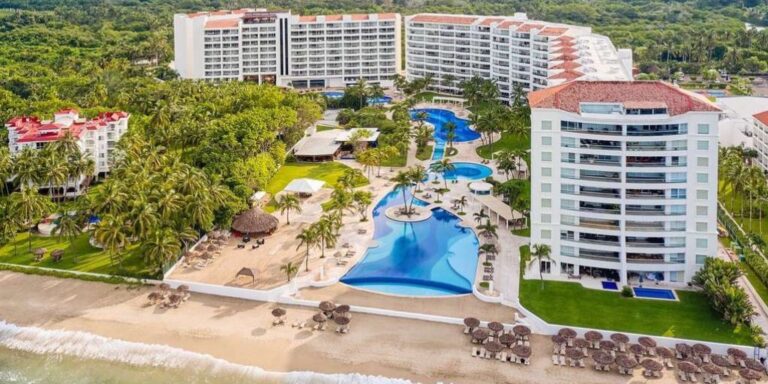Hyatt releases Q1 results for 2020. (Picture: Hyatt)
Hyatt announces a net loss of $103 million in Q1 2020, as its leadership takes steps to respond to the unprecedented challenge posed by the latest coronavirus.
Hyatt recently shared its Q1 2020 results and, as expected, KPIs dropped across the board.
We take a closer look at how Covid-19 impacted the group’s financial results and how its leadership is responding to this unprecedented challenge.
Substantial losses in early 2020
Hyatt Hotels Corporation reported a net loss of $103 million in Q1 2020, compared to net income of $63 million over the same period a year earlier.
Adjusted net loss came to $35 million in the first quarter of 2020, down from an adjusted net income of $48 million in Q1 2019.
System-wide RevPAR (revenue per available room) dropped by 28.1%. This includes a 25.8% drop at comparable owned and leased hotels.
In the United States, hotel RevPAR went down by 24.5%.
Meanwhile, net rooms growth was 6.3% in the first quarter, as some new properties went to market at the beginning of the year.
Mark S. Hoplamazian, president and chief executive officer of Hyatt Hotels Corporation, said: “As Covid-19 became a global pandemic, we took prompt and meaningful actions to manage the first phase of the impact of the virus. We obtained substantial additional cash, reduced investment and corporate spending to preserve cash, and we reduced third-party hotel owners’ direct costs through this period.
“While we continue to operate in an environment of suppressed demand and great uncertainty, we believe our existing liquidity provides sufficient capacity to cover at least 30 months of operations under current conditions.”
Hyatt reveals Covid-19’s impact on the ground
With restrictions easing in China, Hyatt reports that occupancy rates reached almost 25% at the end of April. Other parts of the world which are still under lockdown face lasting declines in occupancy.
On 30 April, the company’s system-wide occupancy averaged around 15% and operations were suspended at 35% of the group’s hotels.
This can be broken down into 62% of full service and 19% of select-service properties in the Americas closing temporarily, while 58% of hotels in Europe and 17% of hotels in the Asia-Pacific region suspended operations for the time being. Finally, 82% of Hyatt’s owned and leased hotels are currently not operating.
EBITDA comparisons show year-on-year decreases of 26.2% in the Americas, a drop of 58.5% in the APAC region and a fall of 91.2% in Europe. Combined with the previously outlined closure rates, this shows that Hyatt’s operation in Europe was hit hardest in financial terms.
Hyatt continues to implement mitigation measures and is working on reopening properties where government restrictions permit, to ensure cash-flow and protect the company’s liquidity.
“All of the actions we have taken are informed by our purpose of care, which includes protecting the health and safety of our colleagues and guests, the financial health of our hotel owners as well as the long-term health of our business,” Hoplamazian added.
“We have taken many steps designed to demonstrate care and to help us to emerge from this crisis in a position of strength. We are well-positioned to continuously adapt our business so that we may play an important role in providing employment opportunities to members of the Hyatt family over time while caring for our guests, customers and owners so that they can be their best.”
As it continues to grow, Hyatt Hotels Corporation doesn’t lose sight of what’s most important – people. Hyatt is a company that was built by family.







